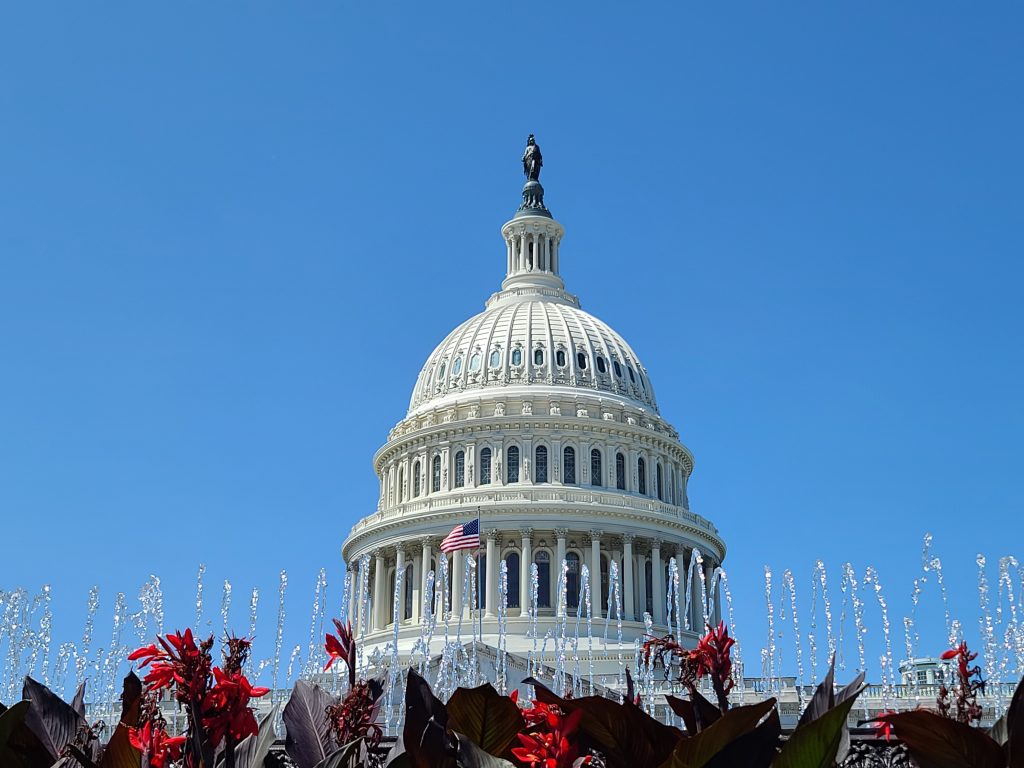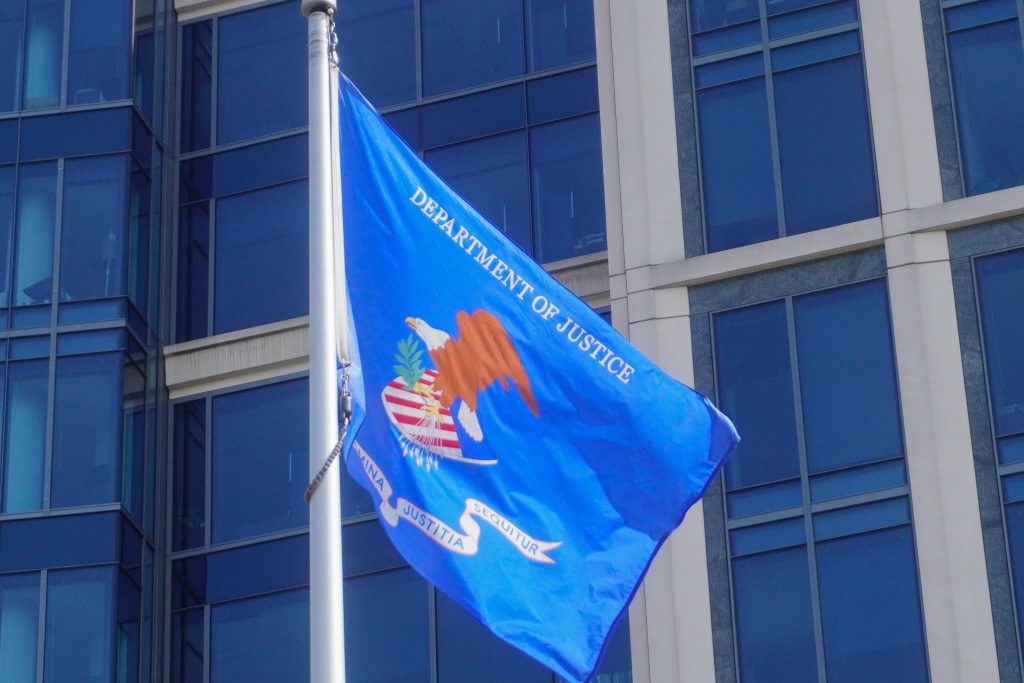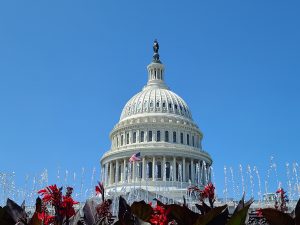The fight over silencers and the National Firearms Act (NFA) has moved to the Senate.
That’s where the biggest struggle over whether or not silencers will be delisted is going to happen. Whoever can convince the parliamentarian that their view of the reforms is right will win. Or, maybe, it’ll be a split decision OKing the tax cut but booting delisting.
Either way, we wanted to see where all of the Senators stood on the question. So, we went ahead and asked them all. That yielded some interesting results.
Contributing Writer Jake Fogleman, meanwhile, took a close look at how President Donald Trump’s Department of Justice has approached gun policy halfway through 2025. He noticed an interesting dichotomy emerging between how it approaches federal and state gun laws.
Plus, the American Suppressor Association’s Knox Williams gives his take on how close the Senate is to removing silencers from the NFA on the podcast.

Where Senators Stand on Silencer Deregulation in Reconciliation [Member Exclusive]
By Stephen Gutowski
The House included a silencer tax cut and deregulation provision in its version of the reconciliation bill earlier this month.
The bill would repeal the $200 federal tax required for each silencer transaction and remove the sound-suppressing devices from the National Firearms Act’s (NFA) definition of “firearm.” That would mean those who buy them would no longer need to register their silencers with the Bureau of Alcohol, Tobacco, Firearms, and Explosives or submit their picture and fingerprints to the agency–though they would still need to complete a National Instant Criminal Background Check System check under the Gun Control Act.
The bill has now moved to the Senate, where the strict rules governing reconciliation will determine whether the silencer provisions make it through to the end. The Reload spoke to half a dozen sources with knowledge of how the bill is shaping up and reached out to every Senate office to determine where things stand today.
Senate Republicans largely responded by backing both parts of the silencer provision. Senators Budd, Ricketts, Daines, Schmitt, Sullivan, Crapo, Lee, Cassidy, Moran, Sheehy, Tuberville, and Cornyn supported the tax cut and delisting. Many have previously backed silencer deregulation through legislation like the Hearing Protection Act, which has 34 Republican co-sponsors in the Senate.
More moderate Republican Senators, like Maine’s Susan Collins and Alaska’s Lisa Murkowski, did not respond to our request for comment. Neither is a co-sponsor of the Hearing Protection Act.
Additionally, there was at least one Republican who said they were concerned about the delisting portion of the plan.
Wyoming Senator Cynthia Lummis expressed opposition to the idea. Her office said she is concerned delisting could lead to state-level problems for some silencer owners.
“Senator Lummis is supportive of reducing the suppressor tax to zero, but she’s not supportive of taking it out of the NFA because that makes it illegal in several states, including Colorado,” a staffer told The Reload.
The issue stems from NFA mirror laws. Many states have adopted provisions that regulate silencers, short-barrel firearms, machineguns, and other NFA items. Some of those state laws make it illegal to possess a silencer unless the owner has already registered it under the NFA, which may become impossible if the devices are removed from the NFA’s purview.
Knox Williams of the American Suppressor Association said his group is working to dissuade Senators of concerns over state laws. He argued that most states don’t have the kind of NFA mirror laws that present a problem for delisting, and those that do can be fixed through legislation or litigation. He said even the wording of Colorado’s state law, which requires silencer owners to have a federal license to legally possess them, is dubious and may not outlaw silencer ownership even if Congress delists the devices from the NFA.
Williams, other gun-rights activists, and Republican Senate staffers who spoke to The Reload remain confident the Republican caucus is broadly supportive of the silencer provisions overall. They expect both will make it into the legislative language when it drops as early as next week (although, a push to add short-barrel rifles and shotguns to the desliting effort seems less likely to succeed).
Plus, the Republicans who did speak to The Reload on the record were adamant that the silencer provisions were good policy.
“Removing suppressors from the NFA is a win for responsible gun owners. Suppressors protect hearing and make recreational shooting safer,” Nebraska Senator Pete Ricketts said. “This is a common-sense provision that respects both the Second Amendment and the safety of our communities.”
“I’m glad to see the House stand up for the Second Amendment rights of Americans and get rid of unnecessary red tape placed on law-abiding gun owners,” Senator Tuberville told The Reload. “For too long, unelected bureaucrats have been on a power trip by overregulating the use of legally-owned firearms and accessories. I was glad to see this included in the House’s version of reconciliation and hope it remains in the Senate’s version.”
None of the Senate Democrats have publicly supported the silencer provisions. The only Democrats who responded to our inquiry were Senator Ron Wyden and Senator Mark Warner. They slammed the idea in the starkest terms.
“The Republican tax plan being pushed through Congress not only cuts critical services Virginians rely on in order to give huge tax breaks to billionaires, but it also makes our communities less safe by weakening gun safety measures on silencers,” they said in a joint statement. “Part of the reason that these registration and ownership requirements exist is because silencers, like the one that was used in the Virginia Beach mass shooting, make it harder for law enforcement to locate and respond to an active shooter. Americans deserve to feel safe in their communities, and we will oppose this disastrous bill when it comes to the Senate floor.”
Senator Wyden went even further.
“Republicans are cutting taxes for murderers and gang members who buy gun silencers, but they’re leaving millions of poor kids behind,” he said in his own statement.
While other Democratic Senators didn’t respond to our inquiry, some made their positions clear during a Thursday press conference and floor speech. Senate minority leader Chuck Schumer and Connecticut Senator Chris Murphy said they would push to have the provisions stripped from the bill.
“Parents don’t want silencers on their streets. Police don’t want silencers on their streets,” Schumer said on the Senate Floor. “The only ones who do? The gun lobby – and that’s exactly who this provision is written for.”
Schumer promised Democrats would object to the silencer language during reconciliation, arguing it violates the Byrd Rule because the goal is to remove the regulations on the devices rather than have an impact on the budget. Gun-rights activists argue the NFA is a tax law, and the regulations on silencers are merely there to enforce the tax, making the whole provision concerning silencers a budgetary measure.
The parliamentarian, who multiple sources said had not yet made a determination on the silencer provisions, will ultimately decide what stays and what goes.
Republican Senators decried Democrats’ rhetoric around the devices and the bill, including Senator Murphy’s false assertion that it would eliminate background checks on silencer purchasers. Louisiana Senator Bill Cassidy specifically called out misconceptions around the devices.
“Anyone who thinks suppressors are movie ‘silencers’ clearly has never shot with one,” he told The Reload. “It’s great that the House included provisions to allow law-abiding citizens to protect their hearing and exercise their Constitutional Rights.”
Kansas Senator Jerry Moran argued that silencers are needed to protect lawful hunters and shooters.
“Hunters and recreational shooters rely on suppressors to help protect their hearing while using firearms,” he told The Reload. “I cosponsored the Hearing Protection Act, which modernizes the process for purchasing suppressors, ensuring that hunters, sportsmen, and recreational shooters can legally obtain noise suppressors to help make their sport safer without having to navigate bureaucratic red tape.”
Missouri Senator Eric Schmitt said delisting silencers was about removing unnecessary restrictions.
“I look forward to supporting this provision to ensure no burdensome taxes or unnecessary regulations infringe upon the rights of law-abiding gun owners, “he told The Reload.
Ultimately, Texas Senator John Cornyn summed up the Republican consensus on the bill. He said the NFA’s tax and registration scheme on silencers was unconstitutional, and Congress needs to repeal it.
“Firearm silencers should not be subject to overregulation and unconstitutional taxes that hamstring Texans’ freedoms and pocketbooks,” he said in a statement. “I’m proud to see the House stand up for law-abiding gun owners, eliminate senseless red tape, and proudly defend our Second Amendment rights, and I will continue to fight for this as the Senate works to pass President Trump’s One Big Beautiful Bill.”
The first draft of the Senate bill could come as early as Monday. However, it will take several weeks from there to get it through the budget reconciliation process and to a final vote.
Benjamin Owen contributed to this report.
Podcast: Inside the Senate Silencer Deregulation Fight (ft. American Suppressor Association’s Knox Williams) [Member Early Access]
By Stephen Gutowski
This week, we’re taking a deep dive into the fight over using reconciliation to delist silencers from the National Firearms Act (NFA).
The House included a provision to eliminate the tax on firearm silencers/suppressors and one to completely remove them from the NFA’s purview. But that wasn’t without controversy, and the Senate is now taking up the bill. That’s why we’ve got Knox Williams, the head of the American Suppressor Association, on the show to update us on where things are headed.
Williams said there was a meeting between gun-rights activists and Senate staffers this week that left him confident they have a good chance of getting everything they want. He said Republicans were on board with the argument that silencers can be fully delisted because the NFA is a tax at its core.
Still, there is a lot of uncertainty about how the parliamentarian will rule on the delisting. Williams agreed that the tax cut is seen as a sure bet. However, he said there’s a strong chance delisting gets through, too.
You can listen to the show on your favorite podcasting app or by clicking here. Video of the episode is available on our YouTube channel. An auto-generated transcript is here. Reload Members get access on Sunday, as always. Everyone else can listen on Monday.
Plus, Contributing writer Jake Fogleman and I talk about new rulings out of the Fifth Circuit upholding a lifetime gun ban for someone who committed a traffic crime and the Second Circuit against a white collar criminal. We also provide new reporting on the ATF’s recent use of masked agents to conduct operations. Finally, we update everyone on a new concealed carry reciprocity agreement between Pennsylvania and Virginia before covering some big stories from outside of The Reload.

Analysis: Trump DOJ Hawkish on State Gun Laws, Dovish on Federal Gun Control [Member Exclusive]
By Jake Fogleman
More than four months have passed since President Donald Trump ordered the Department of Justice (DOJ) to take a pro-Second Amendment stance in ongoing legal cases and other controversies. A clear pattern has emerged as to what that looks like in practice.
Trump’s February order, dubbed “Protecting Second Amendment Rights“, began with more of a whimper than a bang as its original 30-day deadline for execution was quickly bypassed with little to show for it in terms of concrete DOJ activity. Since that early window, however, the effort has shown signs of life that gun-rights advocates might take encouragement from.
In late March, the DOJ launched a formal “pattern or practice” investigation into the Los Angeles County Sheriff’s Department and its slow walking of concealed handgun license applications. Around the same time, Trump ordered the creation of a new task force comprised of numerous DOJ personnel designed in part to “increase the speed and lower the cost of processing concealed carry license requests in the District of Columbia.”
Then, in early May, the department took the unusual step of asking the Supreme Court to take up a Second Amendment case to which the federal government isn’t a party. It requested that the justices strike down Hawaii’s ban on carrying guns on publicly accessible private property as unconstitutional in a challenge filed by gun-rights advocates. Finally, Attorney General Pam Bondi earlier this month sent a letter to the Pennsylvania Attorney General and president of the state’s sheriffs association arguing that some of the local sheriffs’ refusal to issue non-resident carry permits violates the Second Amendment and warning them that the practice could lead the DOJ to formally intervene.
Overall, the activity suggests that the Trump DOJ has the desire and will to aggressively police states and localities, particularly on the issue of gun carry, under its new “pro-Second Amendment” posture. However, this new DOJ hawkishness on local gun policy also belies the way the agency has continued to take the opposite tack in matters that affect the gun laws that it’s meant to enforce.
Early evidence that the Trump DOJ would not necessarily be the same legal ally to gun-rights advocates in federal gun-control matters first began to emerge in April on the issue of non-violent felons.
Throughout that month, Solicitor General John Sauer (R.) filed numerous opposition briefs responding to requests from non-violent felons hoping the Supreme Court might restore their gun rights. He also intentionally avoided filing an appeal in Range v. Attorney General, a case featuring the only appellate ruling to strike down the federal felon-in-possession ban and gun-rights advocates’ most sympathetic plaintiff, effectively ending the litigation and heading off the potential for lasting nationwide precedent.
That pattern of DOJ skittishness around the potential for the justices to hear cases from sympathetic plaintiffs that might imperil federal gun-control laws continued this month. After twice delaying a decision on whether to appeal the Fifth Circuit’s ruling in US v. Daniels, a case concerning the federal gun ban for marijuana users, the DOJ finally filed an appeal request with the Court last week. But it came with a catch. It said that the Court should hold the Daniels case until it decides what to do with a separate guns and drugs case, US v. Hemani, that the DOJ would prefer it to hear.
While not explicitly said, the request gives the strong impression of an attempt to stack the deck against a potential ruling in favor of marijuana users by boosting the case of the less sympathetic defendant. Daniels’ case stems from a simple traffic stop in which a police officer discovered “marihuana cigarette butts” in his ashtray and two firearms in the car. He admitted to smoking marijuana with some regularity but said he was not under the influence at the time of the traffic stop, nor did the government provide any evidence that he was. He had no prior serious criminal record, but a judge sentenced him to 46 months in prison for violating § 922(g)(3). The Fifth Circuit Court of Appeals has twice struck down 922(g)(3) as unconstitutional as applied to him because it said that America’s historical tradition only supports disarming those who are actively intoxicated, and even the Biden DOJ felt it was a compelling case for Supreme Court review.
Hemani, on the other hand, is accused of being a drug dealer who sold and used promethazine, while also being a user of marijuana and cocaine. According to the DOJ’s petition, he has also been under FBI surveillance for his alleged ties to affiliates of the Iranian Revolutionary Guard Corps. An FBI search warrant served at his home recovered a 9mm pistol, 60 grams of marijuana, and 4.7 grams of cocaine. Hemani was subsequently indicted under § 922(g)(3) but had his indictment dismissed only under the Fifth Circuit’s binding precedent on active intoxication and disarmament. His case, the DOJ argued, would provide a “better vehicle” for deciding “whether Section 922(g)(3) complies with the Second Amendment.”
On Tuesday, the DOJ also filed an opposition brief arguing against Missouri’s attempt to have the Supreme Court overturn an Eighth Circuit Court of Appeals decision that struck down its sweeping “Second Amendment Sanctuary” and gun control nullification law. While it did concede that the view of the DOJ under Trump differs from its predecessor by being more accepting of portions of the law that “constitute mere non-enforcement of federal law protected under the anti-commandeering doctrine,” it said that other portions that “purport to invalidate and derecognize” federal law “clearly violate” the constitution.
“The petition for a writ of certiorari should be denied,” the DOJ wrote.
Even some actions taken by the DOJ regarding federal law that have a “pro-gun” veneer have essentially preserved the regulatory status quo. The DOJ’s much-discussed Forced Reset Trigger settlement last month, for instance, undoubtedly marked a 180 from the Biden DOJ, which was aggressively cracking down on the devices as illegal machineguns. However, the settlement also averted what seemed likely to be a sweeping circuit precedent against the FRT ban, in light of the Supreme Court’s similar bumpstock decision. While the settlement returns previously forfeited triggers and allows the company Rare Breed Triggers to continue selling new ones, it will still serve to limit the spread of FRTs on the civilian market by attaching stipulations against copycat makers of the devices and against new versions created for handguns.
Perhaps most instructive is the DOJ’s recent intervention in a Fifth Circuit Court of Appeals case over the legality of suppressors. While the Biden DOJ argued for the position mimicked in the February three-judge panel ruling that suppressors aren’t “arms” covered under the Second Amendment, the Trump DOJ filed a brief last month taking the opposite position, which some gun-rights advocates found encouraging.
However, in the same brief, DOJ nevertheless argued that the NFA’s regulation of suppressors is still constitutional because “it imposes a modest burden on a firearm accessory that is consistent with this Nation’s historical tradition because suppressors are specially adaptable to criminal misuse.” It also argued against the Fifth Circuit dismissing the existing ruling and taking the case en banc.
Perhaps it’s unsurprising that the DOJ would closely guard its own legal prerogatives and instead channel the President’s wishes onto other targets. Despite the President’s penchant for busting political norms, the DOJ is typically a small-c conservative institution by nature and has an interest in maintaining, rather than reducing, its enforcement purview.
But many gun-rights advocates nevertheless had high hopes that the second Trump administration would take a far more energetic approach to gun control policy rollback in the federal government than the first time around. Thus far, that hasn’t materialized.
That’s it for now.
I’ll talk to you all again soon.
Thank you,
Stephen Gutowski
Founder
The Reload







